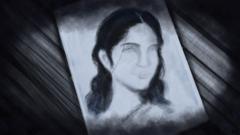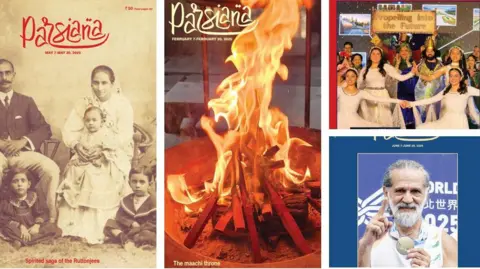In the realm of Indian cinema, few stories resonate as profoundly as that of PK Rosy, a name that echoes with the struggles against caste oppression and gender bias. In the 1920s, amidst a conservative society that frowned upon women's participation in the arts, PK Rosy boldly stepped into the limelight, becoming the first female lead in Malayalam cinema with her role in "Vigathakumaran" or "The Lost Child." Unfortunately, her groundbreaking achievements were marred by harsh social backlash, driven by her lower-caste background.
Born Rajamma in the early 1900s in Travancore (now Kerala), Rosy came from the Pulaya community, a group historically relegated to the bottom of India's caste hierarchy. Her early life was interlaced with oppression, as members of the Pulaya community were often subjected to violence and dehumanization. The narrative surrounding Rosy's life illustrates the immense adversity she faced; yet, her unyielding spirit set her apart from many.
Supported by a theatre artist uncle, Rosy ventured into acting, gaining prominence in local theatre. It was director JC Daniel who recognized her talent and cast her in "Vigathakumaran," but the Catalyzing premiere of the film became a nightmare. Despite her skillful depiction of an upper-caste character, an upheaval occurred as audiences reacted violently to a scene that included a kiss between the hero and Rosy's character, leading to chaos, destruction, and Rosy’s subsequent ostracism from the film industry.
Following the premiere debacle, Daniel faced severe financial setbacks while Rosy was forced to flee her hometown and sever ties with her past to protect her safety. The emotional toll of societal rejection shaped her existence, prompting her to adopt a new identity through marriage to an upper-caste man and a life in relative anonymity.
Years turned into decades, and Rosy's legacy remained buried under the weight of caste trauma. Subsequent generations distanced themselves from her Dalit identity, fearing the stigma associated with it, leaving a trail of familial disconnection. Attempts by a Malayalam television channel to uncover her daughters yielded little insight, as the family chose to remain shielded from their renowned ancestor’s legacy.
Yet, while the haunting echoes of caste continue to reverberate through her family history, recent initiatives led by Dalit filmmakers and activists have emerged to reclaim PK Rosy’s rightful place in the annals of cinema. A film festival honoring her contributions was founded by influential director Pa Ranjith, fostering an ongoing revival of interest in her story.
In a world where PK Rosy's life was overshadowed by societal turbulence, her narrative holds immense significance in discussions about caste discrimination and gender in the arts. As we reflect on her journey, it becomes evident that while she found sanctuary, it came at the cost of her artistic aspirations and identity—an inescapable truth of the historical scars left by caste oppression.




















